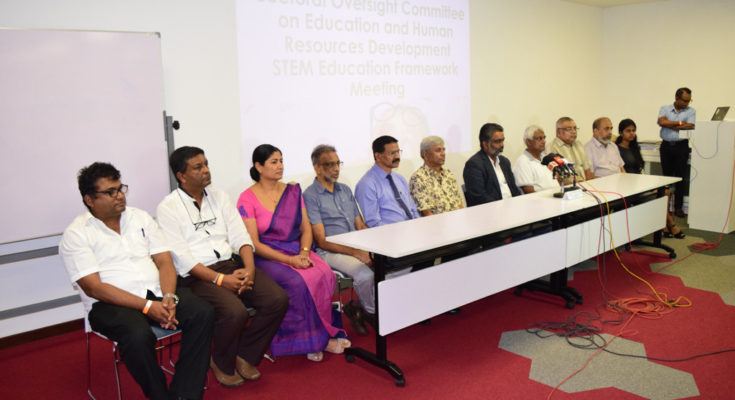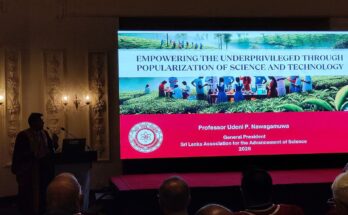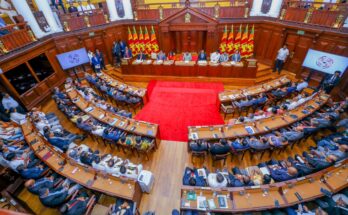With everything happening in fast track, countries in modern day world are looking for novel strategies to keep up with the rapid changes and to face challenges those changes bring. Education system of a country is the most important tool in shaping the country’s future work force to suit the fast-changing world and meet the future socio-economic challenges to keep up with the other countries, or at least to survive.
Sri Lanka offers free education for every citizen all the way up to university level, and is famous for its higher literacy rate as well. Current Sri Lankan education system is based on traditional, teacher centered and exam-based system. Over the years a major discussion is going on about the Sri Lankan education system whether this good old system of education is capable enough to cater the needs of the future world. Sri Lankan authorities who are responsible for the Sri Lankan education system including the Ministry of Education and National Education Commission started looking for ways to improve the effectiveness of Sri Lankan Education system using novel strategies that suits the fast-changing world education landscape. In that aspect one of the main strategies proposed was incorporating STEM education system to the current system that could shape countries future work force to face challenges in future.

Originated in United States in 1990s the word STEM denotes Science, Technology, Engineering and Mathematics. It’s an education system in which students are taught different concepts in STEM using novel strategies like simple team activities or real-world lessons. This education system mainly targets developing much needed human resources for STEM related jobs.
In Sri Lanka, the STEM Education subjects development act was approved by the Cabinet on the 29th August 2017, and Ministry of Education, Department of Science started working on establishing STEM education framework in 2018. Upon developing the basic framework by 38 education and industry experts’ panel, Sectoral Oversight Committee on Education and Human Resources Development of Sri Lankan Parliament initiated as a special project to establish a frame work for STEM education within Sri Lankan education system. As a part of this project the committee organized a special workshop to formulate the policy framework work for integrating STEM in to the Sri Lankan Education System from 6th to 8th September in MAS Athena premises in Thulhiriya, Warakapola. Resource personnel representing different levels of the Sri Lankan Education system including Students, Teachers, University lecturers, Scientists and High-ranking Officials from various government organizations participated and actively engaged in the dialogue of STEM Education Framework formulation. During the workshop 9 new sub groups were formed to look in to different areas of this framework and the final policy will be drafted with the collective inputs of these subgroups.

This program was supervised by Prof. Ashu Marasinghe, Chairman of the sectoral oversight committee, and the coordination was done by Dr. Piyal Ariyananda, consultant to the Sectoral Oversight Committee.

Speaking exclusively to the Sri
Lankan Scientist Magazine Dr. Ariyananda mentioned that one of the main aims of
this STEM integration program is to motivate children in to more active,
innovative and creative learning process leaving behind the pressure created
from the exam-based learning process. Prof. Ashu Marasinghe speaking to the Sri
Lankan Scientist Magazine mentioned that they expect to integrate STEM to the
school curricula during the educational reforms planned for 2023, but a pilot
project involving few selected schools will be commenced on 2020 itself.





what is STEM education ?
Well, nicely written article, but few things have to be corrected. It’s the Ministry of Science Technology and Research that proposed incorporating STEM education system to the current system, by way of a Cabinet Paper submitted in August 2017. And it’s the same CP that got approved by the Cabinet on 29th August 2017, and NOT an Act. As per one of the proposals made in the CP, the Ministry of Education, as decided by the Cabinet, appointed the National Committee on STEM Education with the aim of reforming STEM Education in Sri Lanka. As a result, the Committee, with the inputs of over a hundred experts developed the Strategy for STEM Education in Sri Lanka. This was then taken up by the Sectoral Oversight Committee on Education and Human Resources Development as a special project.
Hope you will attend to these corrections.
In Sri Lanka, we don’t have an Act named “the STEM Education subjects development act”.
Thanks for sharing this useful information with us.
This will help the students to develop a variety of skill sets. STEM Education can help future generations to be successful in their careers. Students should experience these types of science activities that would empower their life – https://stemforyou.com/